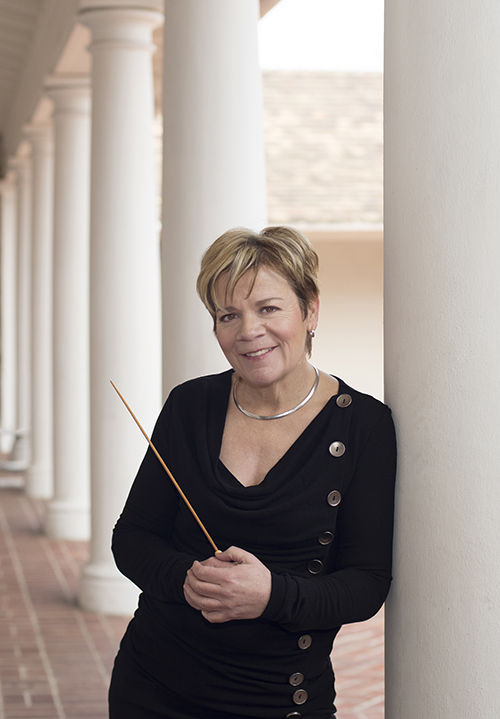
Marin Alsop
© Adriane White
Marin Alsop, perhaps one of the best-known women conductors, has broken through the glass ceiling decisively. She was the first woman to be appointed as music director of a major American orchestra in 2007, and has led the Baltimore Symphony Orchestra for 14 years.
A protégé of Leonard Bernstein, Marin Alsop brings her BSO tenure to a close during the 2020/21 season, and begins her appointment as the Chief Conductor of the ORF Vienna Radio Symphony Orchestra. The RSO’s opening performance in October at the Wiener Konzerthaus, is an auspicious year for the orchestra—it’s 50th anniversary.
Praised for her wide range of repertoire, innovative programming, and her articulate elucidations of music to her audiences, this first program with the RSO will feature a world premiere by Lera Auerbach, Eve’s Lament – O Flowers, That Never Will Grow, as well as two Hindemith works—the rarely performed one-act opera Sancta Susanna and his colorful symphony Mathis der Maler.
Who wouldn’t feel chills to be conducting in Vienna, the city, which has been the capital of music-making for centuries, and where her two idols conducted before her: Leonard Bernstein and Gustav Mahler?
But it didn’t begin auspiciously. Marin Alsop’s parents, both professional musicians, introduced Marin to violin studies at an early age. When her father took her to a Young People’s Concert, with Leonard Bernstein conducting, she reveled in how joyful and relatable he was. Marin, a precocious 9-year-old, turned to her father and said, “That’s it! I want to do that!” But Marin’s violin teacher at Juilliard, immediately dismissed the idea. “Oh, you’re too young, and anyway girls can’t do that! Her parents, annoyed with this response, presented Marin with a box filled with batons. Their support meant everything. For years, everyone—the world, society, musicians—said: as a woman, you can’t. Not a day went by she didn’t think, “I’m never going to get to do this!”
She proved them wrong. Alsop attended the Juilliard School and Yale University, where she was awarded an Honorary Doctorate in 2017, becoming the first woman to be awarded Tanglewood’s Koussevitzky Conducting Prize in 1989. She began studying with her mentor, Leonard Bernstein.
Alsop conducts Bernstein:
Bernstein: Symphony No. 1, “Jeremiah” – II. Profanation (Jennifer Johnson Cano, mezzo-soprano; Baltimore Symphony Orchestra; Marin Alsop, cond.)
Bernstein: Symphony No. 2, “The Age of Anxiety” – Part II: The Masque: Extremely fast (Jean-Yves Thibaudet, piano; Baltimore Symphony Orchestra; Marin Alsop, cond.)
Bernstein: Symphony No. 3, “Kaddish” – Ia. Invocation
Bernstein: Divertimento – II. Waltz: Allegretto, con grazia
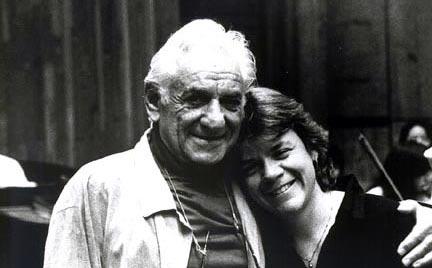
Marin Alsop with Leonard Bernstein
© Walter Scott
Since then, Ms. Alsop has conducted the most prestigious orchestras the world over. She is Director of Graduate Conducting at the Johns Hopkins Peabody Institute, and she has received several Gramophone awards for her extensive discography, including a complete set of her mentor’s music. In addition to a position with the São Paulo Symphony Orchestra she has had a 25-year tenure as Music Director of California’s Cabrillo Festival of Contemporary Music. Recently, her recording of Jennifer Higdon’s Percussion Concerto with Colin Currie and the London Philharmonic, was selected for the Library of Congress National recording registry, of aural treasures worthy of preservation.
Higdon: Percussion Concerto (Colin Currie, percussion; London Philharmonic Orchestra; Marin Alsop, cond.)
In 2013 Marin was the first woman to conduct the BBC’s Last Night at the Proms, a gigantic coup. Nothing is quite like the finale to London’s PROMS festival each year. Below is a medley of that evening, featuring snippets of the entire experience including the anticipation outside the imposing Royal Albert Hall, the enthusiasm of 5,000 listeners, sing-alongs, huge video cameras, the intermission revelry, the waving flags, and of course the PROMERS standing and bobbing in the emptied center. I get goosebumps watching this and I hope you do too, especially when everyone reaches to their neighbor to holds hands and sway with the music. We can only hope this event and similar festivals will continue in the near future.
Marin Alsop believes very strongly that “music has the power to change lives,” and like many of us trying to accommodate the new reality we are facing, she reminds us, “in times of crisis, and in times of celebration, music brings us together.”
Asked in an interview how this period of social distancing is going, she attests to the heartbreak of losing her instrument, about longing for the sound of the orchestra and relationships with the musicians. Human connection is what music is all about and communicates both heartbreak and triumph.
Marin’s life is fast-paced and intense, and to stop suddenly is alarming. She’s trying to look at the time as a chance to think more broadly. Still teaching her students at Peabody, she is enjoying the luxury of holding an entire seminar on the study of one ground-breaking work such as Rite of Spring by Stravinsky. Simply conducting and playing the notes is only scratching the surface of a great piece of music. The opportunity to reflect in depth on a work and its context is vital, as these works represent the trajectory of human history.
While there’s no doubt we’re experiencing a departure for the human race, Ms. Alsop imagines how the present will affect art and specifically music, noting some of the greatest music has been written during times of great struggle, such as in concentration camps during World War II, and under authoritarian regimes. Marin trusts we’ll see a rich resurgence in sharing music in new and creative ways.
Ms. Alsop has created several projects to ensure future generations continue music-making. When she assumed her position with the BSO she imagined other women would quickly follow. But after more than a decade passed, she had to ask: Where is everybody? Women were still at a disadvantage. Unless a conductor can get 40 instrumentalists together, she doesn’t have the opportunity to try things out. Women need experience, training, and opportunities to practice in a safe environment. In 2002 Alsop founded the Taki Concordia Fellowship to promote and nurture the careers of talented young woman conductors. To date 20 women have benefited from her mentorship.
Ms. Alsop also launched OrchKids, in Baltimore for the city’s underserved youth. Believing classical music should be accessible to everyone, Marin pondered how she could impact the city, which is 70% of color, while at the time only one musician of color played in the BSO. After receiving a MacArthur Grant, eager to instill a passion for music to as many young people as she could, she decided to fund a program, which would enable kids to play instruments and be part of an ensemble. Approaching the toughest area in the city, West Baltimore, where poverty is endemic, she began with 30 first-graders. Today OrchKids “a year-round, during and after school music program designed to create social change and nurture promising futures for youth in Baltimore City,” is an award-winning program involving over 1800 kids and 10 Baltimore Public Schools. They receive classes in band, orchestra, choir, ensembles, and musicianship, and have access to the BSO concerts, guest artist workshops, after-school options, and summer festivals such as Interlochen Arts Camp and the UK’s National Sistema Youth Orchestra. The only requirement—to get good grades, take care of their instruments, and to stick with the program.
Succeeding on an instrument and the resultant praise and validation, gives a young person the ability to envision themselves as being able to accomplish anything. She believes every single human is born hotwired for music inspiring the best in humanity. As a conductor and influential spokesperson, Marin Alsop has accomplished amazing things to inspire musicians and audiences everywhere.

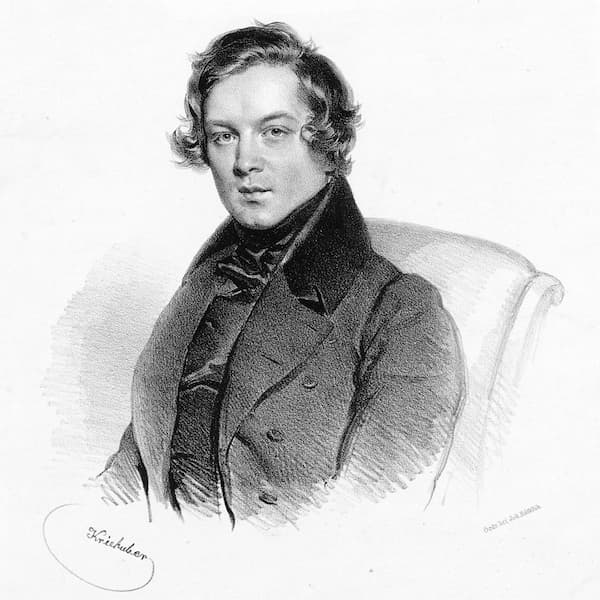

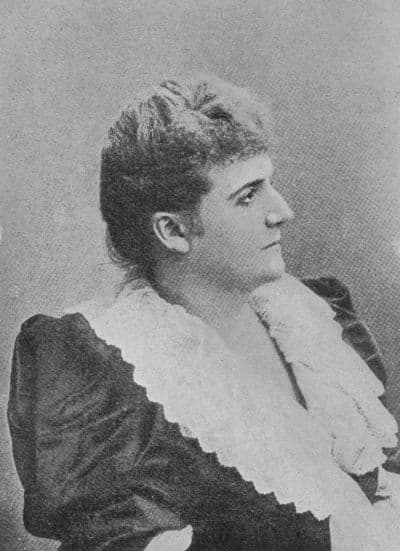
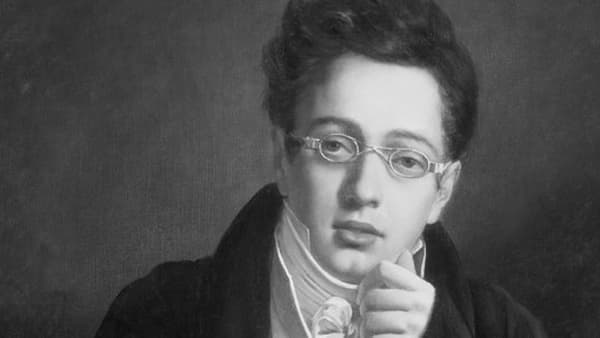
Where can I purchase or listen to Lera Auerbach, Eve’s Lament – O Flowers, That Never Will Grow? I was at her US premier in 2019 at the BSO and heard it and it was mesmerizingly beautiful. I’ve been looking for it ever since.